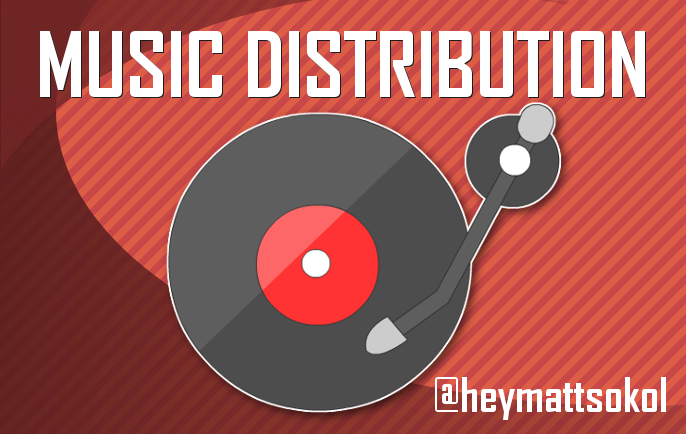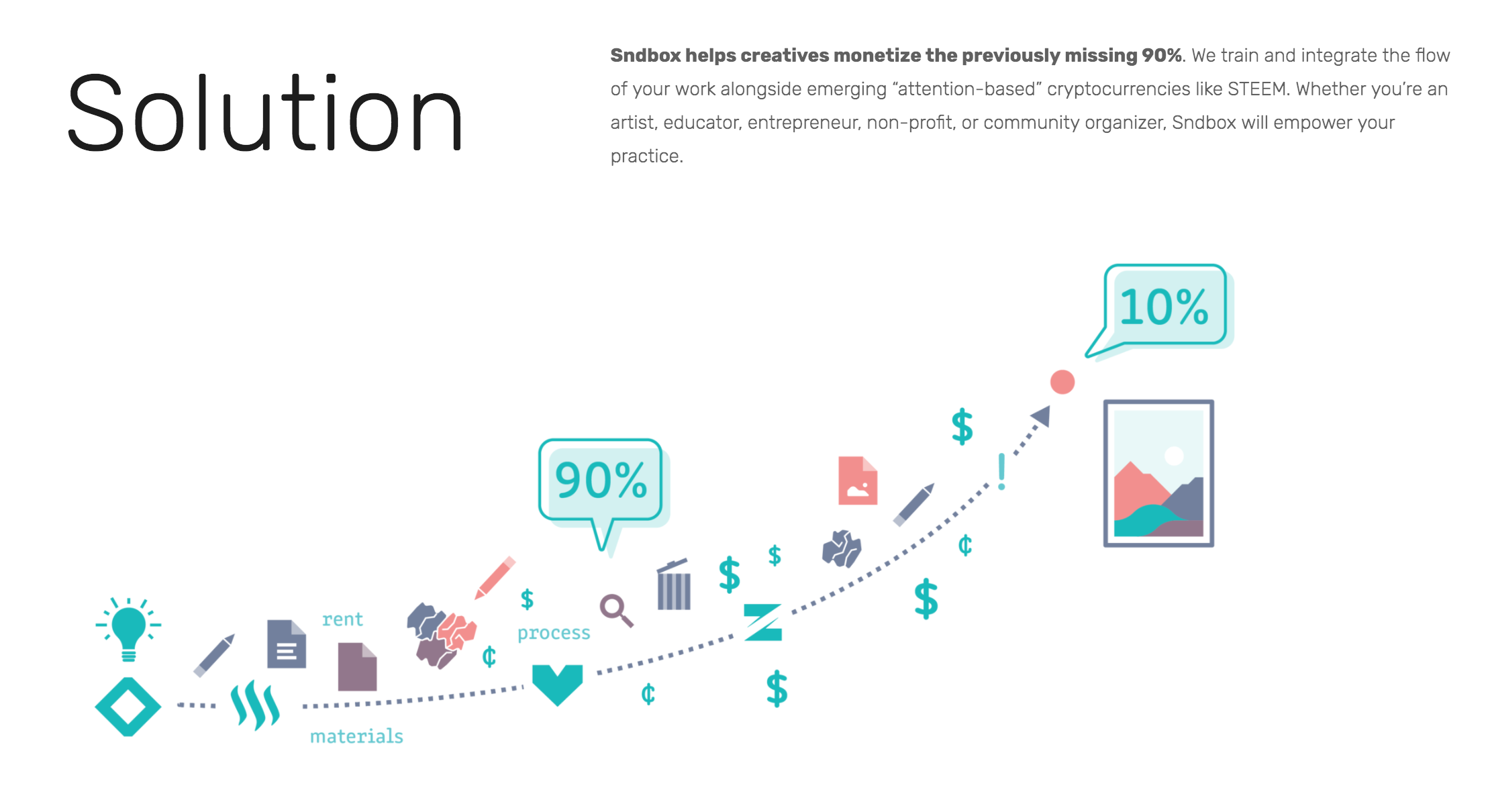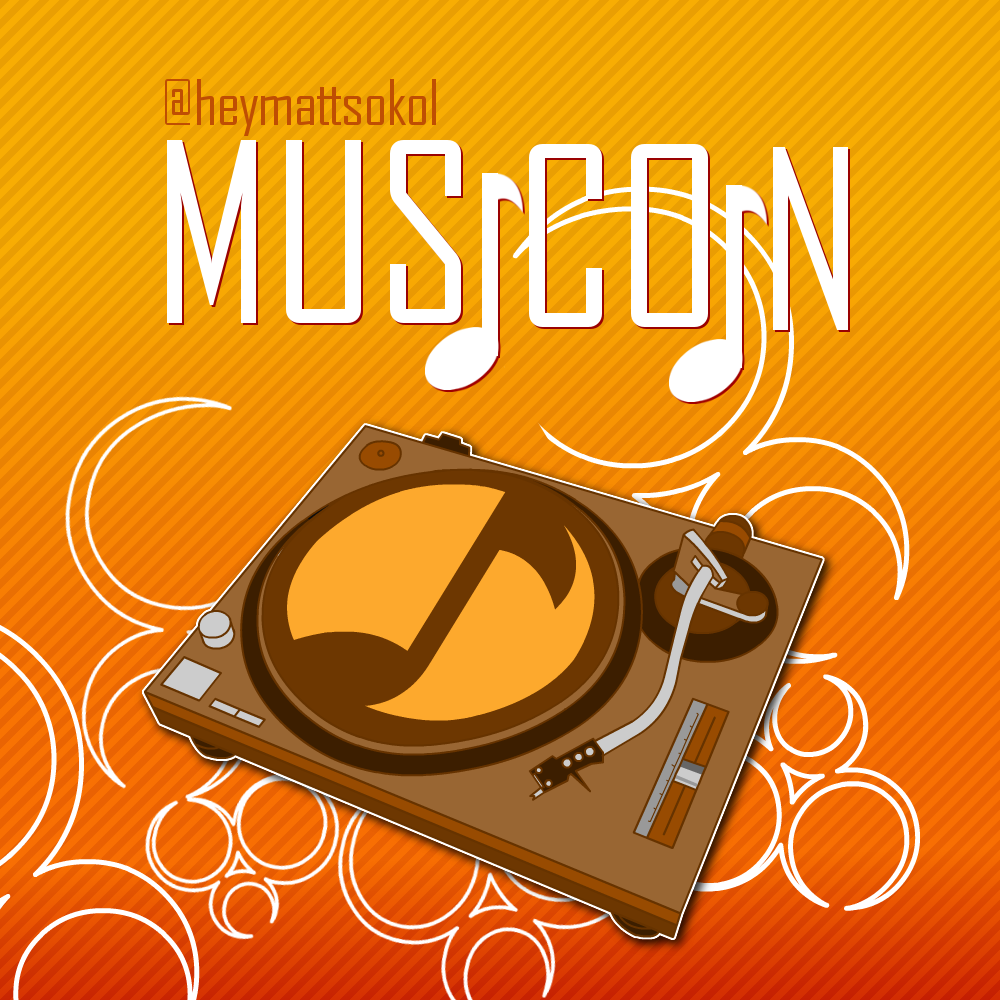In 2017 this was one of my most popular Steem posts. However it turns out that a LOT has changed in the world of blockchain music distribution since last year.

images by @atopy
In fact out of the four platforms I featured in last year’s edition, only one of them is still viable at this time. That’s LBRY, which we’ll take a fresh look at later in this post. The other three (Dot Blockchain, BitTunes, and UjoMusic) all still exist - but right now, none represent the most exciting and immediate opportunities for musicians.
In their place, I believe two new platforms have become clear frontrunners in the race to distribute and monetize music content with blockchain technology. One of these blockchains will be very familiar to most of my readers… and the other is a more obscure one that you might have missed until now.
We have a ton of ground to cover. This article is packed full of original images, exclusive interviews, and in-depth investigations of the platforms covered. It's going to be a blast. By the end you will have a working mental picture of how to distribute music via blockchains in 2018.
With no further ado, let’s take a look at the first blockchain music platform on the list.
Part 1: Steem
I am convinced that Steem is the biggest opportunity to make money as a musician through a blockchain right now.

This is how I felt six months ago - and I'm still in love
It is a sight to behold the numerous opportunities available on Steem for musicians… in stark contrast to the rest of the music industry, here financial opportunities abound especially for people who create new, original, personal work.
Monetize The Creative Process
One of Steem’s talent incubator groups, called Sndbox, does a good job of summing up why Steem is so good for musicians and other artists.

source: sndbox.co
In the normal “music career,” it is very hard to earn money early on. You either take “General Business” gigs like performing in cover bands and teaching school students how to play basic musical scales, or, you may not be able to pay your rent.
The problem is that for many musicians, these business gigs do not help them get closer to their real dream: Creating and promoting their own original music as a full time “job.”
Steem makes it possible to monetize the whole process of being a musician. Works-in-progress, photos, video blogs, live clips, one-take digital performances, live streams, and so much more… All of it can be monetized.
Whereas before all of the building blocks of a music career had to be paid for, Steem provides the opportunity for any musician to build income streams before they pay for music gear and other expenses. Rather than lose money on each new initiative, the marketing and finance savvy musician can fund any project they want.
In the old world you needed a “head start” of maybe $100k to invest and survive on if you wanted to build a sustainable, independent music entity (a band, etc) from scratch. Now Steem makes it possible from $0.
Steem is a Top 30 Blockchain
Steem has consistently held in the top 35, and now recently it’s held up in the top 30, for all blockchains based on market cap as reported by CoinMarketCap.com.
I’m writing this paragraph on January 31st 2018 and Steem is currently the 26th most valuable blockchain:

source: coinmarketcap.com
Of course market capitalization by itself is not enough to prove the legitimacy of a blockchain - we’ve seen scam tokens reach the top 10 before.
That’s why it matters that Dan Larimer was one of the key founders of Steemit, building the technology that underlies the entire blockchain. You may have heard of Dan before - he’s the founder of three blockchain projects all in the top 30 by market cap - Steem, BitShares, and now EOS as well.
Dan is one of the most respected and influential developers in all of blockchain technology, and it’s an gift to have his mental DNA embedded into the core of Steem.
You can learn more about Dan in this article from Steem author (and legend) @stellabelle.
Other Opportunities on Steem
Steem is more than a single website. It’s a blockchain that anybody can build a music distribution platform on.
We have DSound, the steem-powered competitor for Soundcloud. Then there’s DTube, the direct competitor for YouTube which has attracted several million-plus subscriber YouTube channels over to the Steem side.
For the live-streamers in the audience, DLive has you covered there too. It’s a newer platform that is making good and fast progress.
Many community initiatives exist to help new users get involved with the community: Open Mic Challenge, Sndbox-Alpha, The Cut, Curie, and so many more. There is a LOT to do on Steem, and all of it can earn you money.
If you don’t have an account on Steemit, you should sign up. It’s free and it is the biggest opportunity for up-and-coming musicians in the music industry today.
Quotes From Steem Users
As preparation for this post, I asked my audience on Steem to offer advice for new users who want to join the platform. Specifically I asked three questions. Here’s each one, along with some of the most interesting answers:
Question 1: How did you first discover Steem?
@elliotjgardner is a long-time Steemian who has participated in dozens of Steemit Open Mic Weeks and regularly hangs out in Steemit Chat. He says:
“I saw a Facebook post from @Grantcardone that said you could earn cryptocurrency from social networking. I was sold immediately. I’ve never really been much of a writer but thought I’d do it anyway until then I found the open mic competition and it was pretty much a green light for posting other media.”
@soundscape is a newer member of Steem who says:
“I first found steem while talking about cryptos in a local coffee shop. We discussed a Justin Suntron live stream and what he said, saying Facebook owns all our content and how all they care about is $$$$. Someone next to me mentioned Steemit, then I went home and checked it out.”
@jessamynorchard is a Steem artist who posts several new artworks - from music to poetry and beyond - alongside life blogs and other great content. She tells her story:
“I first discovered Steemit in the Summer of 2016 and was introduced by my friend @quantumanomaly to the platform. He encouraged me to use it as a platform [for] my music, and after much persuasion, I joined in October 2016, and I quickly discovered it was exactly that. A perfect platform for undiscovered or underrated musicians.”
Question 2: Why do you think Steem is useful for musicians?
@fourfourfun is a musician and electronic music journalist who writes for Inverted Audio amongst other blogs. He’s cautiously optimistic about Steem, offering this quote:
“The idea that a musician could run a blog and get content, post tour updates, that sort of thing, and get money for it, is a good concept. I see that appealing.”
When pressed on his reservations, he offers the following critique of Steem:
“Gaming the reward pool, invulnerability through SP [Steem Power] - these things need to be addressed before you see websites start to pick it up [as Smart Media Tokens].”
@jessamynorchard has another great answer for this question:
“It gives musicians an opportunity to ‘make a living’ without ‘making it,’ and giving ‘making it,’ an entirely new paradigmatic definition. As a gigging musician, blogging on Steemit, and working a 40-hour a [week] job… it was tough. Now, between the support of the Steemit audience built over time, I was actually able to quit my job last August and focus completely on my creative endeavors. Since then, I have recorded, published and am about to digitally release an album. That wouldn’t have and couldn’t have happened without this platform.”
Question 3: Whats the one most important piece of advice you would give to somebody who is about to sign up for Steem?
@steevc is a long-time Steemian with more than 10,000 posts under his belt and deep ties to the music scene. He suggests the following:
“Don't chase the money straight away. Network with people who share your interests. They may follow you. Make it fun and you will want to come back even when you don't make much.”
Let’s bring back @elliotjgardner from question 1 for one more piece of wisdom, he says:
“Don’t expect magic to happen because there’s money/crypto up for grabs, you still need to do all the work you’d do anywhere else. It’s a social network so do as much networking as you can, otherwise it’s likely that you’ll be disappointed.”
That brings us to the end of our Steem overview. Up next, we’ve got a younger and also quite exciting blockchain to look at:
Part 2 - Musicoin

Musicoin is an alternative to Soundcloud. Any artist can upload audio content and fans can listen to all of it for free while the artist gets paid instantly. Think Spotify, iTunes, etc, but with more democratized access to the platform.
There is a lot to be admired about this blockchain. It is probably the closest thing we have to a full-featured decentralized music distribution platform right now. This is important - without a good distribution platform that caters specifically to music, musicians will be limited in their options. Musicoin is saving the day here.
On the down side, the user interface needs a lot of work. I have to be honest here, many people probably look at the Musicoin interface once and just immediately leave the site. It looks like a person’s first serious attempt at building a website.
The big question with Musicoin is: Will they improve to the point where it’s a professional-level interface?
All of this depends on the technology maturing in the right direction. I consider Musicoin a riskier investment of time or money than Steem, for sure, but also a place with potentially huge rewards down the line.
How Musicoin Works
I wanted to get the real scoop on Musicoin, so I reached out to fellow Steemian and official Musicoin Ambassador @djlethalskillz, real name Skillz, to help us understand what makes Musicoin special.

djlethalskillz
“I found out about Musicoin through my continuous research on the blockchain for alternative solutions to promote and sell my music. That’s how it started.”
Skillz began posting his beats and collaborations on the Musicoin platform while engaging with the community at a forum called “Let’s Rock”.
As he told me, “You can network and engage with other artists on the Musicoin platform and get engaged with various activities - from community networking, to pitching ideas…”
“In addition you can use the power of Steemit community, by sharing your Musicoin links on Steemit and engaging with the Steemit community you can increase your follower and supporters and earnings from the Steem blockchain.”
In other words, Skills is saying that you can use Musicoin as a way to improve all of your blockchain earnings. Your Musicoin activities will feed into your Steemit success and vice versa.
The ultimate strategy may be to sign up for all three of the platforms in this guide.
I asked Skillz if he had any last tips for musicians about promoting their music on Musicoin.
“Musicoin has an ‘artist of the week’ which is featured on the home page each week. It increases exposure and plays, which increases Musicoin token rewards for them. There’s also sections for the most played song of the day/week/month and great embedding tools to share on other social media sites like Twitter.”
“…and when someone clicks on your link from Twitter, they listen on Musicoin, so you still get paid.”
If Music is Free, How Do Musicians Get Paid?
This is a question that I had to figure out before I could recommend Musicoin to anybody. The answer turns out to be pretty simple and logical.
On Musicoin, each “free” listen is actually compensated by the blockchain, which credits the artist with one token for each unique listener. These tokens come out of the “mining rewards” - basically, the system pays for itself out of its own token supply.
You can assemble playlists of your favorite songs and follow new artists to keep up with their music. In this way Musicoin is much like Spotify or Soundcloud.
However - on Spotify, artists are compensated in weird ways. It takes months to earn your money for streams and the exact amount and distribution of the per-stream royalty is largely out of your hands… What can you do about it?
On Soundcloud it’s even worse - with few exceptions, basically nobody makes any money on Soundcloud. Even the superstars with sponsored accounts are barely earning anything there.
On Musicoin it is simple - one token per unique play. And you receive these tokens instantly, not months after the fact. It’s possible to have each song distribute the royalty proportionally, so your bandmates can each receive part of the money without anybody having to keep track of the numbers.
For the modern artist, who is constantly creating, remixing, and collaborating - Musicoin represents a simple way to make sure everybody gets paid a fair stake for their contribution to a project. This is a huge thing that artists desperately need right now.
I know it’s a huge relief for me… Even on Steemit, my band The Walding Family has to manually keep track of our rewards and split them up accordingly. On Musicoin we can finally automate this process - a song could pay 20% to my wallet, 20% to my bandmate’s wallet, and then 60% to our “band fund” wallet.
Furthermore if we collaborate with 10 different people across 6 different songs, with each song having different percentages owed to different people…. this is impossible for one person to track normally, but it is easy on Musicoin. Amazing!
Musicoin and the Abundance Economy
Musicoin is designed as an abundance economy. That’s why tipping is built into the model - because when a music distribution platform is set up right, tipping should be easy.
Think of all the songs you’ve heard and loved - wouldn’t you want to tip, say, $0.10 with a simple “thank you” button next to the song? Musicoin makes this possible and easy.
You can tip as many or as few tokens as you want - the default is one token, worth about $0.03 as of this writing - and the reduced friction around giving and being generous helps for Musicoin’s community to become stronger.
People want to give tips to musicians - they simply do not have access to the right tools that would make it easy. If you could be slinging pennies around all day, micro-tipping at a moment’s notice, you might find yourself becoming more and more generous as the time goes on.
The Best Strategy for Musicoin in 2018
Right now, here’s what I would recommend based on my general music promo experience:
(1) Upload a few of your older songs to get started - just 2-3 songs, not all of them.
(1b) Every week upload one more of your older songs until they are all up - if you have a large catalog that’s even better. You can upload one song per week for a year - that would be great. This way your “new” uploads are always showing up on the feed.
(2) Spend 30-60 minutes per day, at least 3 days per week, listening to other people’s content. Leave comments on everything you enjoy at all - no generic spam comments, always be honest and be clear that you’ve actually heard the song - doing this a few hours a week will help you get integrated into the social network of Musicoin.
(3) Make friends, collaborate, and keep an eye out for updates…
It’s so early for Musicoin that just uploading content and engaging with other users’ songs will go a long way.
Beyond that I would not spend too much time here, just be in “wait and watch” mode and hope for the site to get better and grow its user base. In a year, we should hopefully have a better idea of the long-term potential for Musicoin.
Part 3 - LBRY

LBRY is an unusual media distribution platform which has the potential to become a major Steem competitor in 2019.
To explain why LBRY is so cool, first I need to provide some blockchain industry context.
Generally speaking, most of the best technology projects in the blockchain space are bad at communicating with their users and maintaining a happy, healthy community. The same is true in reverse - the most hyped, seemingly community-oriented projects are sometimes quite lacking in the technology department.
LBRY is cool because it already has both of these good qualities.
With LBRY, we see the unusual combination of cutting edge, scalable technology AND friendly, approachable humans who actually talk to their users. You can join the LBRY Discord channel and within hours you’ll be talking to the top members of LBRY - the CEO and main developers are all regularly in there, along with other staff.
What’s The Catch With LBRY?
OK so the one thing about LBRY is that they are entirely focused on developing their own protocol rather than a website. In fact the main LBRY “content portal” right now - their equivalent to “steemit.com" - is the LBRY app, which is not a browser-accessible website.
Having to download an (computer, not mobile) app rather than access it via the web browser is probably the biggest thing that stands in the way of LBRY’s user adoption. At least that is how I see it.
You hear a lot more about Musicoin than LBRY, for example, even though LBRY’s technology and interface are clearly superior at this time. That has to do with LBRY requiring a downloadable app, whereas musicoin's main services can be accessed via the website.
Also LBRY is oriented more towards video content - in the music context it is very new, with only a few musicians regularly posting content.
Here’s the other thing, though: You know how Steemit existed for a while without DTube, then once DTube became useable enough, we all saw way more video content happening? With LBRY this process is in reverse - They are starting with videos, but soon there will be better music distribution options.
Just like Dtube and Steemit, LBRY will have a “LBRY-Sound” or similar platform. Just like Steem, they’re an open ecosystem that anybody can build upon.
By now a lot of people can see the potential in Steem. LBRY is much more obscure - but I’m more confident than ever that the LBRY blockchain has the potential to become a huge part of the blockchain media ecosystem.
I suspect that LBRY will become Steem’s number one competitor in the world of media distribution on the internet.
How LBRY Helps Musicians
“I first discovered LBRY when I was discovering GPU mining - I came across the project on BitcoinTalk and then joined the slack channel. I started talking to some of the folks on the project and fell in love completely.”
That’s Tom Zarebczan, Community Manager at LBRY, speaking to me via a private chat within LBRY’s Discord community.

Tom Z
Tom and I have been internet friends ever since I first stumbled onto LBRY about a year ago. He’s quick to retweet anything with a whiff of LBRY interest and is one of the world’s foremost LBRY evangelists.
I wanted to know why he dedicates so much of his time to this project. Specifically, what benefit could a platform like LBRY have for musicians?
“Musicians, just like other content creators, want to get compensated for the work that they put into creating music. By using a platform that gives them control over their content and monetization strategy, they can cut out middlemen and choose their best distribution process.”
That’s exactly what we hoped to get from the internet - “control over content and monetization” - but as we now know, the internet has mostly helped us with content and not with monetization. Tom’s point about LBRY is simple: It solves the other half, giving you not only content control, but monetization control as well.
With a system like LBRY, you won’t have to pray for your videos to avoid “demonetization,” as so many successful YouTubers still struggle with. On that note, I asked Tom the elephant-in-the-room question: How can LBRY compete with a huge company like YouTube?
His answer made sense to me: “[People should] understand that LBRY is still a very young project that has a long way to go in terms of feature set and performance. You can't compare it to a service like YouTube which has been around for 15 years. By getting in early with LBRY, you can appreciate how it works early on and experience how it evolves over the next few years.”
I have to agree with Tom here. In my own experience watching one year of LBRY development - it is astonishing to see the app improve over time. I’ve seen it 10x itself once already in terms of user interface and performance speed/reliability.
Thanks to Tom for taking the time to talk with me about LBRY - you can connect with him on Twitter for more information.
One Other Cool Aspect of LBRY
With Steem it’s pretty hard to buy a lot of influence. At this point it costs $50,000 to purchase 10,000 Steem Power, and even that only makes you a small-to-medium—sized dolphin.
In contrast, there are only half as many LBRY tokens currently in circulation — and they cost 10% the price of the Steem token right now. In other words you can think of each LBRY token as buying you 20x as much influence as an equivalent USD value of steem tokens.
What I’m trying to say is that I think LBRY has similarly huge potential to Steem, but much less hype, so it might be a chance for noobs to get a bigger stake on an equally important blockchain.
As a guy who joined Steem more than a year ago and STILL feels like a small fish in the sea - it’s worth considering the power of buying influence on up-and-coming blockchains. Or, in lieu of funds, earning influence by creating content.
LBRY is a promising blockchain project that deserves a lot more attention from the music world.
Conclusion: Does It Make Sense For You to Put Your Music Content On The Blockchain?
Short Answer: Yes.
Blockchain technology will help to complete what the internet started, so far as liberating musicians goes.
The hope was that the internet would change everything for the better. Musicians hoped to share their music directly with fans and earn a fair amount of the sale price for it. Unfortunately the internet only solved half the battle.
The internet made information free but that wasn’t enough by itself. This actually ruined the music industry for a while because music IS information and it became much harder to sell a thing that, in some sense, wants to be free.
Blockchain takes it a step further by allowing money to flow as freely as information does.
Once upon a time, you needed to have access to a printing press to publish a book. Then anybody was able to do it and now almost everybody publishes their thoughts to somewhere - a blog, Facebook, Yelp reviews, whatever.
Once upon a time, you needed to play by your nation’s arbitrary rules if you wanted to participate in the monetary system - in other words, if you want to buy bread, you have to buy into the entire system of the American dollar. I’m not talking about taxation - I’m talking about the literal usage of the dollar in your day-to-day transactions.
And our current monetary system, as well as aspects of the legal system attached to it, sucks. Regardless of your home nation - money does not flow to musicians like it should in most of the world.
Blockchain changes that by giving us the same amount of flexibility over money as we do over information. The same way that there are now a million blogs, each exploring different concepts, so too will we have a million currencies…
..and just like blogs, only a few dozen of them will be “mainstream” and will have major relevance for the world as a whole.
Steem may be one of those. Perhaps it’s LBRY or Musicoin. Hell maybe all three will “cross the chasm” and enter orbit as a mainstream “cryptocurrency” or “digital token,” just like how Bitcoin is already pretty popular.
Nobody can say for sure, you know? All I know is that this blockchain thing is happening and it’s real - after all, my full income is all in cryptocurrency - and I for one will be spending time working on these blockchain music platforms. I hope you will give it a try too.
This is how any artist, regardless of connections or current success level, can gain access to the tools of income generation for the future. It’s a way to move past the “rags-to-riches” musician lifestyle and get an actual steady income going, without sacrificing any of the things that make the mythical musician’s lifestyle so special.
I hope that this guide was useful for you. If you have any thoughts you would like to share, or any other music/blockchain related projects that you want to mention, please feel free to do so in the comments of this post.

